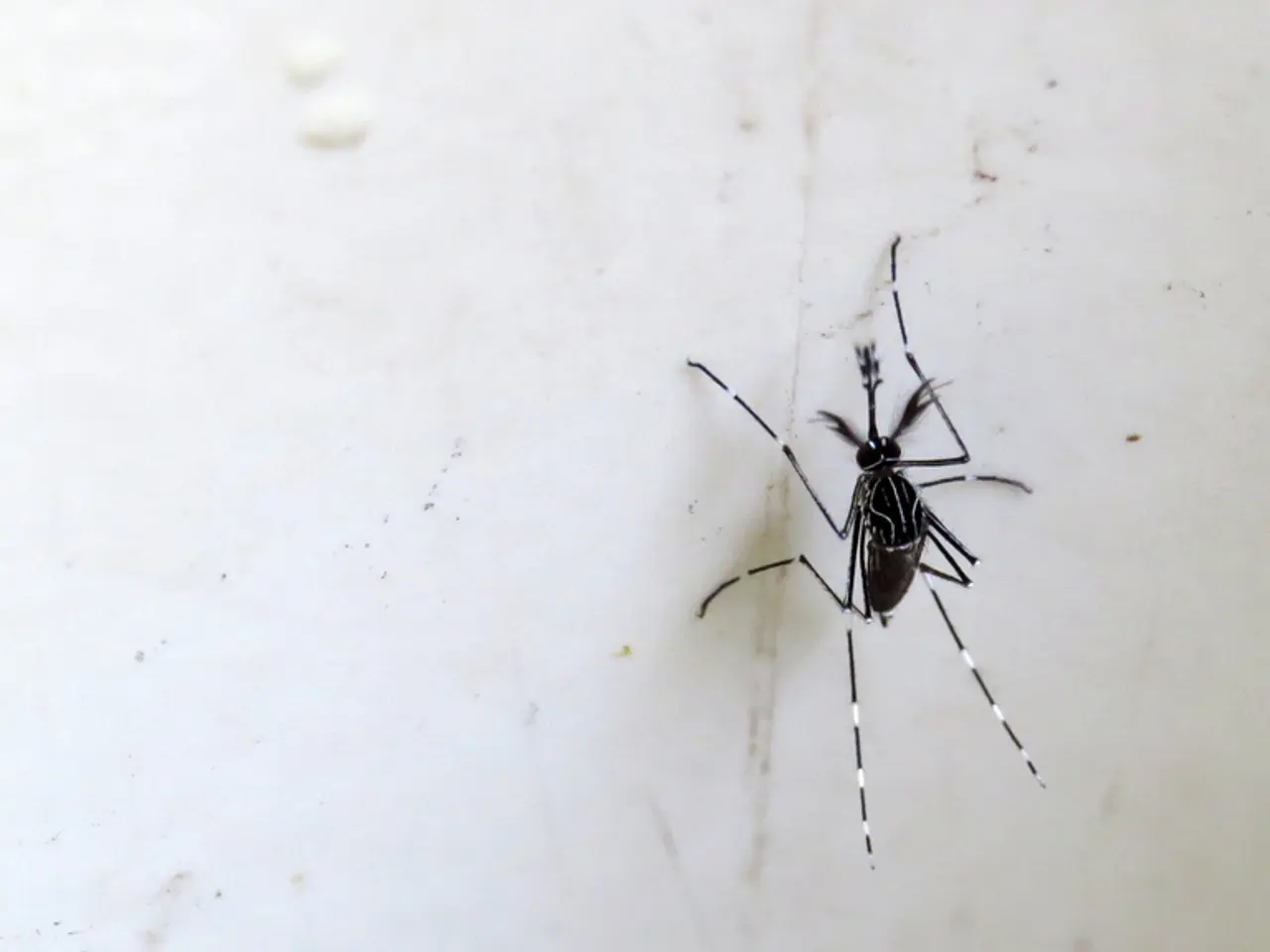Report on potential chikungunya virus outbreak in China advised by the Centers for Disease Control
Chikungunya Outbreak in China: CDC Issues Travel Warning
A chikungunya virus outbreak has been reported in Guangdong province, China, with over 8,000 confirmed cases primarily in Foshan and surrounding areas as of August 5, 2025. In response, the U.S. Centers for Disease Control and Prevention (CDC) has issued a travel warning for this region.
The CDC advises travelers to Guangdong to take precautions to reduce the risk of infection. This includes getting vaccinated, especially for those spending extended periods (typically six months or more) in affected areas. Vaccines for chikungunya are currently available in the U.S.
In addition to vaccination, the CDC recommends protective measures such as wearing long sleeves and pants, applying insect repellent containing DEET, and using mosquito netting for infants too young for repellent. Travelers should also be aware of environmental risks, as the outbreak is linked to monsoon flooding, which increases mosquito breeding sites.
Chinese authorities have responded aggressively to the outbreak, implementing quarantine measures, mosquito control efforts like drone fogging, and enforcing compliance with these measures. In Foshan, efforts to combat the virus include the use of drones to identify mosquito breeding sites, workers spraying residents with mosquito repellent, and the release of mosquito-eating fish into ponds.
Symptoms of chikungunya usually begin 3-7 days after a bite by an infected mosquito. Most people infected with the virus develop symptoms such as fever, joint pain, headache, muscle pain, joint swelling, or rash. While death from chikungunya is rare, people at risk for more severe disease include newborns infected around the time of birth, older adults (65 years or older), and people with medical conditions such as diabetes or heart disease.
As of July, there had been around 240,000 global cases of the chikungunya virus across 16 countries and territories, linked to 90 deaths. In addition to China, the CDC has issued travel warnings for countries including Bolivia, Kenya, and Sri Lanka. Americans traveling to Brazil, Colombia, India, Mexico, Nigeria, Pakistan, the Philippines, and Thailand are at an elevated risk of exposure to the chikungunya virus.
To prevent mosquito bites, the CDC advises using insect repellent, wearing long-sleeved shirts and pants, and staying in places with air conditioning or screens on the windows and doors. Travelers are encouraged to check the CDC's travel advisories for the latest information on chikungunya and other health risks before traveling.
[1] CDC Travel Health Notice: Chikungunya in China
[2] Chikungunya Outbreak in Guangdong, China: What Travelers Need to Know
[3] The chikungunya virus can cause severe joint pain and debilitating symptoms, making it a major concern for travelers.
[4] Preventing Chikungunya from Affecting Your Health and Wellness While Traveling
[5] Mosquito-Borne Diseases: The Role of Science in Protecting Public Health
[6] Some chronic diseases, like chikungunya, can have long-lasting effects on a person's health and well-being.
[7] The outbreak serves as a stark reminder of the importance of medical-conditions awareness and preparedness for travel.
[8] Regular fitness and exercise can boost the immune system, potentially reducing the risk of contracting chikungunya.
[9] The Importance of Mental Health and Resilience During Travel
[10] High stress levels can weaken the immune system, making travelers more susceptible to infections like chikungunya.
[11] Therapies and treatments for chikungunya are limited, making early detection and prevention crucial.
[12] A healthy diet rich in nutrients can help strengthen the immune system and protect against chikungunya.
[13] Adopting a healthy-diet alongside regular exercise can help maintain cardiovascular health and boost overall fitness levels.
[14] Maintaining a proper lifestyle, including managing stress, eating a balanced diet, and getting regular exercise, can help prevent chikungunya and other diseases.
[15] Travel, Lifestyle, and the Impact on Cardiovascular Health
[16] During travel, make sure to stay well-informed about local weather conditions, as they can impact the risk of chikungunya.
[17] Extended travel can have an impact on one's budget, necessitating careful planning and management.
[18] When traveling, be mindful of your consumption habits, as certain foods may trigger allergies or worsen symptoms of chikungunya.
[19] Regular car-maintenance is advisable to ensure a smooth and safe journey, especially when traveling long distances.
[20] In addition to undergoing conventional education, consider self-development programs for personal-growth opportunities.
[21] Cultivating mindfulness through practices like meditation can help reduce stress, which in turn can strengthen the immune system.
[22] Proper car-maintenance can help improve fuel efficiency, making traveling cheaper and more environmentally-friendly.
[23] Investing in skills-training can lead to career-development opportunities, improving overall lifestyle and financial well-being.
[24] As adoption of electric vehicles increases, so does the importance of understanding their maintenance and care.




